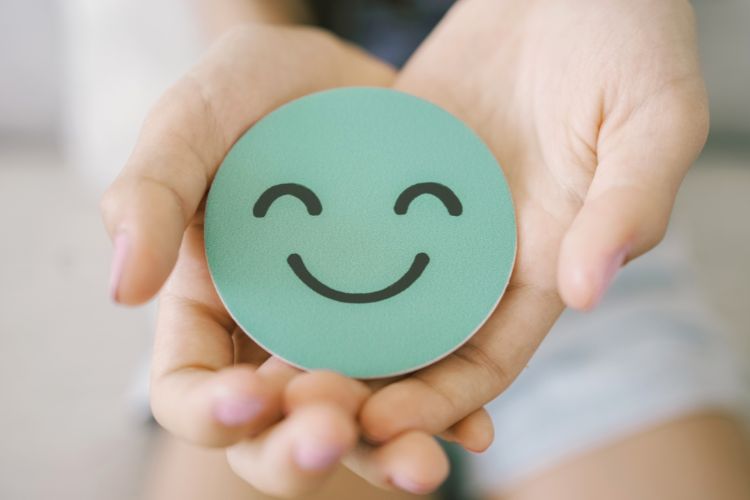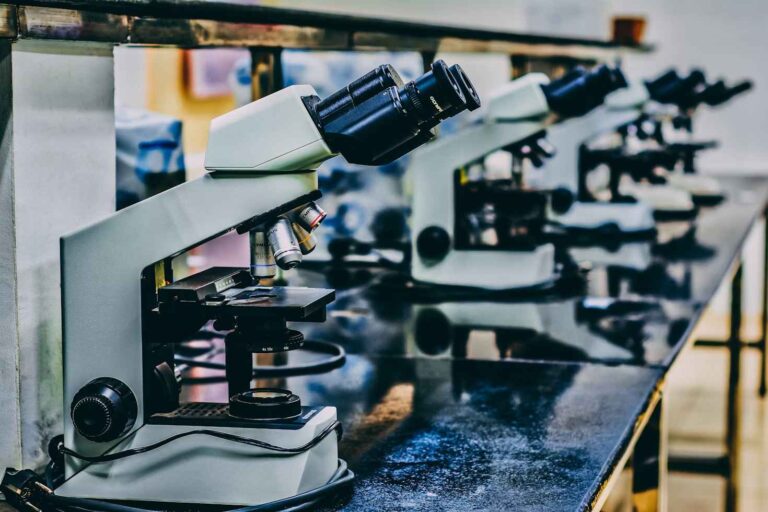Balancing your body and mind is crucial for excellent hair health. A nutrient-rich diet and hydration strengthen your hair. Stress impacts your hair growth cycle; mindfulness and good sleep habits can counter this. Tuning into gut health aids nutrient absorption, while addressing hormonal imbalances can prevent hair loss.
Engage in regular exercise and limit blue light exposure for overall wellness and stronger, shinier tresses. There’s plenty more to uncover about the interesting interplay between your body, mind, and hair health. Keep exploring!
Understanding Hair Anatomy
To fully grasp the impact of a balanced body and mind on your hair’s health, it’s essential to understand the basic anatomy of your hair. Your hair isn’t just a cosmetic feature; rather, it’s a complex structure composed of various elements. The part of your hair you can see is called the hair shaft, which is made of a hard protein called keratin and melanin pigment. The shaft is dead, so the hair that you see isn’t a living structure.
At the base of the hair shaft is the hair follicle, a dynamic, living structure that resides in the dermis of your skin. The follicle is responsible for the growth and pigmentation of the hair. It’s a mini-organ that undergoes a life cycle of growth, change, and rest phases.
Within the follicle, there’s a hair bulb where nutrients are received and new cells are generated. These new cells push up, harden, and form the hair shaft.
Your hair’s health isn’t just about what’s happening on the outside. It’s deeply tied to the inner workings of your body and mind. A balanced body and mind can lead to a healthier hair follicle, promoting stronger, healthier hair growth.
The Hair Growth Cycle
Understanding the hair growth cycle is crucial, as it’s an intricate process that occurs in distinct stages and directly impacts the health and vitality of your hair. This cycle consists of three primary phases: Anagen, Catagen, and Telogen.
The Anagen or growth phase is where your hair actively grows. This phase can last anywhere between two to six years, and it’s the length of this stage that determines how long your hair can grow.
The Catagen phase, also known as the intermediate phase, follows the Anagen stage. It’s a short phase, lasting around two to three weeks, where the hair follicle shrinks and detaches from the dermal papilla.
Finally, the Telogen or resting phase commences. This stage lasts around three months and is when hair doesn’t grow but stays attached to the follicle. After this phase, the hair sheds, and a new hair begins to grow, marking the start of the Anagen phase again.
Understanding these stages helps you appreciate the natural ebb and flow of hair growth and shedding. It’s a continuous, cyclic process that’s essential for maintaining healthy hair.
Role of Nutrition in Hair Health
Nurturing your body with the right nutrients isn’t just crucial for your overall health, it’s also important in promoting and maintaining healthy hair. Your hair is, after all, a reflection of your internal nutritional status. By providing your body the nutrients it needs, you can enhance your hair’s strength, elasticity, and shine.
Here are a few key nutrients that play a significant role in hair health:
- Protein: Hair is primarily made of protein, making it essential for hair health. Consuming enough protein in your diet helps guarantee your hair has the necessary building blocks for growth.
- Iron: Iron helps red blood cells deliver oxygen to all cells in the body, including your hair follicles. A deficiency can lead to hair loss.
- Vitamins: Certain vitamins, like vitamin A, B-vitamins, vitamin C, vitamin D, and vitamin E, play crucial roles in hair health. They aid in the production of sebum, stimulate hair growth, and protect your hair from environmental damage.
Ensuring you’re getting these nutrients in your diet can help you maintain healthy hair. Remember, what you put in your body is just as important as what you put on your hair.
Importance of Hydration for Hair
Just as you quench your body’s thirst, hydrating your hair is equally essential for its health and vitality. Hydration plays a pivotal role in maintaining the strength, elasticity, and shine of your hair. You’ve likely experienced dry, brittle hair at some point, and this is often a direct result of inadequate hydration.
Hydration isn’t just about drinking plenty of water; it’s also about ensuring that moisture is effectively absorbed and retained within your hair strands. Your hair is almost a quarter water, so it’s critical to keep it hydrated for it to stay healthy. When your hair is adequately hydrated, it’s less prone to breakage and split ends, and more likely to be soft, shiny, and manageable.
Consider this: your hair’s cortex, which is the innermost part of the hair strand, is made up of strands of protein called keratin. These keratin strands are bound together by moisture. If your hair is dehydrated, these strands can break apart, leading to damage.
Impact of Stress on Hair Growth
The connection between stress and hair growth is scientifically proven, with chronic stress often resulting in hair loss and reduced hair growth. You may not realize it, but the stress you’re experiencing can take a significant toll on your hair health. It’s not just about feeling frazzled; stress can hinder your body’s ability to produce new hair follicles and may even induce a hair loss condition known as telogen effluvium.
Your body’s reaction to prolonged stress is complex and affects various physiological functions, including hair growth. Here are some critical factors to take into account:
- Stress hormones: When you’re stressed, your body releases a hormone called cortisol, which can disrupt the hair growth cycle.
- Nutrient absorption: Chronic stress can impair your body’s ability to absorb essential nutrients, potentially affecting hair health.
- Inflammation: Stress can trigger systemic inflammation, which may damage hair follicles and hinder their growth.
Understanding the impact of stress on your hair growth is the first step in taking charge of your hair health. It’s crucial to manage your stress levels effectively to maintain a healthy hair growth cycle and prevent hair loss.
Exercise and Your Hair Health
Embracing regular physical activity can greatly enhance your hair health, as it boosts circulation and helps manage stress levels. When you exercise, your heart rate increases, stimulating blood flow throughout your body. This enhanced circulation means that more nutrients and oxygen reach your scalp, nourishing your hair follicles and promoting healthy hair growth.
Additionally, regular physical activity helps manage stress levels, a key factor in hair health. High stress levels can trigger hair loss conditions like telogen effluvium, where hair follicles are pushed into a resting phase, and alopecia areata, an autoimmune condition that attacks your hair follicles. Exercise releases endorphins, often referred to as ‘feel-good’ hormones, which can help reduce stress and its potential impact on your hair health.
However, moderation is essential. Excessive exercising, especially without proper nutrition, can lead to hair damage or loss, as it may strain your body and deplete necessary nutrients. So, make sure you’re getting a balanced diet along with your exercise regimen. Remember, your hair’s health is a reflection of your overall health. Balance is key.
Sleep Quality Affects Hair Growth
Quality sleep isn’t just beneficial for your overall health and well-being, it’s also essential for maintaining healthy hair growth. When you’re in a deep state of rest, your body goes into repair mode. This is when most hair growth occurs.
During the REM phase of sleep, increased blood flow to the scalp supports the delivery of oxygen and nutrients to hair follicles. This promotes growth and regeneration. Conversely, a lack of sleep can trigger hormonal imbalances, stress responses, and inflammation, which can inhibit your hair’s growth cycle and lead to shedding.
To optimize your sleep for hair health, consider these tips from Nordic Biolabs:
- Establish a regular sleep schedule and stick to it, even on weekends.
- Create a sleep-friendly environment – dark, quiet, and cool.
- Limit exposure to screens before bedtime as the blue light emitted can disrupt your sleep cycle.
Gut Health and Hair Connection
Often overlooked, your gut health plays a pivotal role in maintaining robust hair growth and overall hair health. The gut, also known as the gastrointestinal tract, is home to trillions of bacteria that directly contribute to your overall well-being, including hair health.
Let me explain how it works. Your gut bacteria help break down food and absorb nutrients such as biotin, vitamin B12, iron, and zinc. These nutrients are essential for healthy hair growth. When your gut health is compromised, it can’t effectively absorb these nutrients, leading to deficiencies that can manifest as hair thinning or loss.
Moreover, an unhealthy gut can lead to inflammation, which can disrupt the hair growth cycle. Inflammatory substances produced in the gut can enter the bloodstream, affecting the scalp and hair follicles. This inflammatory response can then inhibit hair growth and even lead to hair loss.
Hormonal Imbalances and Hair Loss
Just as your gut health can impact your hair, so too can hormonal imbalances lead to hair loss. Hormones play key roles in regulating hair growth and quality. When these hormone levels are off-kilter, it can trigger hair thinning or even loss.
This can be linked to several hormonal conditions. A common one is hypothyroidism, where an underactive thyroid doesn’t produce enough thyroid hormone, affecting your hair’s growth cycle. Polycystic ovary syndrome (PCOS) can also cause hair loss due to an excess of androgens, male hormones normally present in small amounts in women.
Take note of these key factors:
- Prolonged stress can elevate cortisol levels, another hormone that can interfere with hair growth.
- Hormonal changes during menopause can also lead to hair thinning.
- Certain hormonal medications, including birth control, can affect hair health.
Balancing your hormone levels can help in maintaining healthy hair. Regular exercise, adequate sleep, and a balanced diet can aid this process. However, if you’re experiencing significant hair loss, it’s important to consult a healthcare professional. They can help diagnose the hormonal imbalance and suggest suitable treatment options.
Mental Wellness for Healthier Hair
In addition to physical factors, your mental wellbeing can greatly influence the health of your hair. Studies reveal that stress and anxiety can lead to conditions like telogen effluvium, where hair prematurely enters the shedding phase. Prolonged periods of mental distress can disrupt the natural hair growth cycle, resulting in thinning and hair loss.
Now, you’re probably wondering, ‘how does this happen?’ Well, when you’re stressed, your body produces stress hormones, including cortisol. High cortisol levels can affect the protein synthesis in hair follicles, slowing down hair growth and leading to hair loss. It’s not just about the quantity, but also the quality of your hair. Stress can also cause scalp problems such as dandruff, dryness, and itching, which can further damage your hair.
Holistic Approaches for Hair Care
While tending to your mental health, it’s also important to contemplate a holistic approach for hair care, emphasizing the overall well-being and not just the hair itself. Holistic care involves integrating physical, mental, and spiritual aspects to maintain a healthy scalp and hair.
A few holistic strategies you can adopt include:
- Healthy Eating: Consume a well-balanced diet rich in vitamins A, B, C, D, E, iron, selenium, and zinc. These nutrients are essential for hair growth and health.
- Regular Exercise: Physical activity promotes blood circulation, which carries nutrients to your scalp, fostering hair growth.
- Mindful Practices: Activities like yoga, meditation, or even a relaxing hair massage can reduce stress levels, which can indirectly impact hair health positively.
Lifestyle Modifications for Optimal Hair Health
Your lifestyle plays a vital role in maintaining peak hair health, and making certain modifications can yield significant improvements. Regular exercise, a balanced diet, stress management, and adequate sleep are essential factors that contribute to hair health.
Consider incorporating regular cardiovascular exercise into your routine. It increases blood flow to the scalp, promoting hair growth by delivering necessary nutrients.
A diet rich in proteins, vitamins, and minerals is integral to hair health. Vitamins A, B, C, D, iron, selenium, and zinc are particularly beneficial for hair growth. Don’t forget to hydrate! Water helps in maintaining the optimum moisture level of the scalp and hair.
Stress management is another critical aspect. Chronic stress can lead to hair thinning and loss. So, it’s important to engage in stress-reducing activities like yoga, meditation, or even hobbies that you enjoy.
Lastly, prioritize sleep. Lack of sufficient sleep can disrupt your body’s natural processes, including hair growth. Aim for at least seven hours of sleep each night.
Conclusion
Essentially, maintaining your hair health isn’t just about the right shampoo or salon treatments. It’s about nurturing your whole self. Eating well, staying hydrated, managing stress, and keeping hormones balanced can all contribute to luscious locks.
Embrace a holistic approach, considering mental wellness and lifestyle modifications. Remember, your hair is a reflection of your overall health. So, take care of your body and mind, and your hair will thank you.














